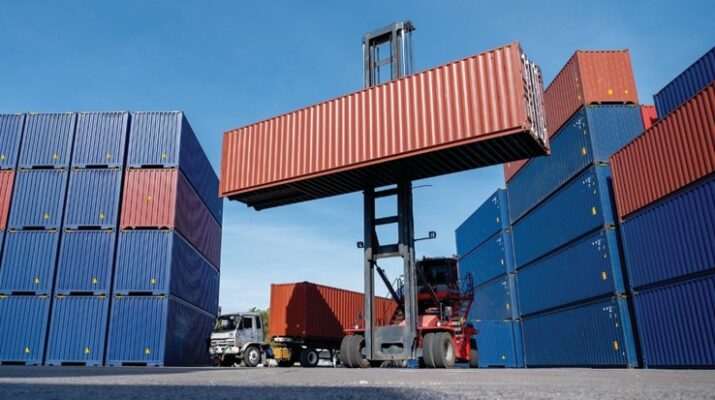Global shipping giants including A.P. Moller-Maersk, CMA CGM, which operate in Nigeria’s major ports, Hapag-Lloyd, China Cosco and Ocean Network Express, among others have been indicted for paying lesser taxes in spite of their huge profits that run into a whopping $340 billion within five years between 2019 and 2013, while developing countries lose over $11 billion in potential tax revenues, a recent report released by Opportunity Green has revealed
By Edu Abade
It has become evident that Nigeria and other major maritime nations in Africa with significant shipping activities have been losing crucial revenues to what has been identified as under payment of taxes by global shipping giants, which would have improved the maritime sector and the economies of developing countries.
A new report released by Opportunity Green has revealed that over $11 billion in potential tax revenues had been lost yearly to developing economies due to tax leakages and gaps being exploited by global shipping giants, most of which operate in Africa.
The report titled: Global Shipping: Mega Profits, Micro Taxes indicates that the global shipping industry has generated huge profits in recent years while paying disproportionately low taxes, especially among countries of the Organisation for Economic Co-operation and Development (OECD).
For instance, between 2019 and 2023, the world’s ten largest shipping companies raked in $340 billion profits, but their tax contributions show a huge disparity as 93 percent of the earnings were concentrated in the hands of 10 major firms, nine of which are located in high-income economies.
In the report, Opportunity Green argues that shipping companies exploited tax loopholes to pay far below the average corporate tax rates, which constitutes a major disadvantage to low-income countries of Africa and the global South.
OECD-based shipping companies, which accounted for nearly half of the profits of up to $174.6 billion, paid $5.3 billion in taxes, representing an effective tax rate of only 3.1 percent, while shipping companies outside the OECD paid tax rate of up to 18 percent on their profits.
“This imbalance directly impacts the global south, where much of the world’s shipping trade takes place. Developing economies, like Nigeria, already grappling with fiscal deficits and mounting debts, lose out on a critical source of revenue that could otherwise be directed toward infrastructure, healthcare and education,” the report stated.
The Opportunity Green report also estimates that, if the shipping industry were to pay fair taxes, governments could have made an additional $42 billion in revenues, enough to cover global food aid programmes.
Figures for the report were obtained by analysing 139 global shipping companies, using available public data from their published accounts and reviewed with CapitalIQ financial reporting to collate the complete database from 2019 to 2023, the last year for which full accounts were available and accessible.
“Findings also showed that the issue stems from the strategic use of tax-friendly jurisdictions. Shipping companies, many of which operate in developing nations’ waters and ports, often book their profits in low-tax countries, shielding billions of Dollars from higher taxation. This allows them to enjoy vast financial gains, while paying significantly less than businesses in other industries.
“With 21.4 percent of total global container shipping involving at least one global south country, the disparity in tax contributions exposes regulatory gaps,” the report further stated.
Responding to the report, a taxation analyst, James Meadway, noted that the world’s four largest shipping firms, all based in high-income countries, contributed only $5 billion in taxes in the years under review, a fraction of what they would owe under standard corporate tax rates.
“If these companies paid their fair share, developing nations wouldn’t be grappling with budget shortfalls while shipping conglomerates thrive on their waters,” he said.
The urgency of addressing this issue has gained traction ahead of an upcoming International Maritime Organisation (IMO) meeting in London during which the IMO will discuss the potential introduction of a global carbon levy on shipping, which could favour revenue generation in developing countries.
If implemented, the levy would mark the first real attempt to ensure that shipping firms contribute more equitably to the global economy.
However, resistance from industry lobbyists threatens to downplay any meaningful reform. The shipping sector has historically pushed back against regulations that could increase operating costs and there are concerns that companies may find ways to boycott the new levy if it is not strictly enforced.
Chief Executive Officer CEO and founder of Opportunity Green, Aoife O’Leary, urged policymakers to seize the moment to introduce fairer taxation measures for the shipping sector.
“The shipping industry produces a billion tons of greenhouse gas emissions annually, yet it continues to sidestep fair taxation. The IMO now has the opportunity to correct this by introducing a global levy that ensures polluters contribute to the fight against climate change,” O’Leary said.
For Nigeria, a nation with significant shipping activity, the stakes remain high if it is losing crucial funds to improve its maritime sector and further develop its economy.
Experts say the report signals the need for closer scrutiny of tax practices in the maritime sector.
While it is yet unclear how much Nigeria loses specifically to under payment of taxes in the shipping industry, the findings raise questions about potential revenue leakages and the oversight of foreign shipping companies operating in the country.
Responding to the development, a trade analyst, Muda Yusuf, stressed that the report necessitated a thorough examination and review of the shipping sector by the Nigerian tax authorities, adding: “The report draws attention to the need for proper oversight and taxation of shipping activities in Nigeria.”
He also maintained that additionally, Nigeria’s Ministry of Marine and Blue Economy and other regulatory bodies may need to re-evaluate tax compliance frameworks to ensure that foreign-owned shipping firms contribute their fair share in taxes from their operating profits.
Of the top 10 shipping companies contacted for comment on the report’s findings, only Wan Hai Lines, A.P. Moller-Maersk and Orient Overseas confirmed the authenticity of their figures, while others declined response.




